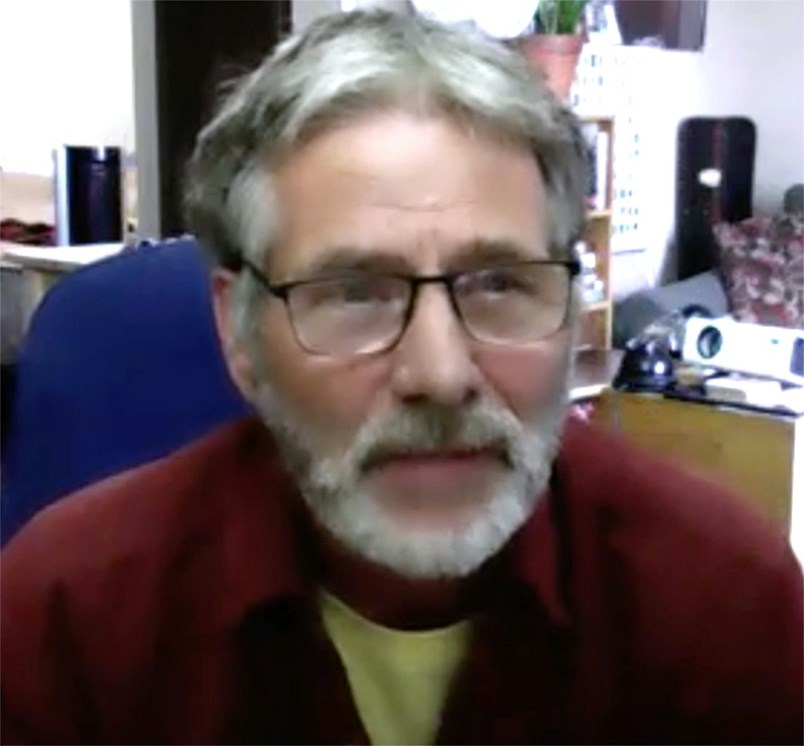When you meet David Milgaard he comes across as just a typical guy.
As a father of two teenagers, he talks about camping, and speaks with pride about his daughter’s high marks in school and his son’s sense of social justice.
For those not old enough to remember the stories making headlines decades ago, Milgaard was the victim of one of Canada's most notorious miscarriages of justice. In 1969 he was arrested when he was only 16. In 1970, at the age of 17, he was wrongfully convicted of raping and murdering Saskatoon nurse Gail Miller and sent to Canada’s toughest prisons for life.
He spent almost 23 years behind bars before he was released in 1992 and exonerated by DNA evidence in 1997. That same DNA evidence linked serial rapist Larry Fisher from North Battleford to Miller’s brutal murder. Fisher was arrested in Calgary in July 1997 and convicted November 1999.
In prison Milgaard suffered unthinkable inhumanity and horror that no one should endure - let alone an innocent person. The hardships led him to three suicide attempts in prison. He survived 小蓝视频 shot in the back when fleeing from police after he had escaped in 1980 for 77 days as he grasped at the freedom he deserved.
He is the subject of three books (When Justice Fails: The David Milgaard Story; Real Justice: Sentenced to Life at Seventeen; and A Mother’s Story: The Fight to Free My Son David Milgaard) as well as three movies (The David Milgaard Story; the docudrama Milgaard; and Crime Stories). He is the subject of the song Wheat Kings by the Tragically Hip in their 1992 album. Also, Canadian artist David Collier depicted Milgaard’s story in his 2000 comic book Surviving Saskatoon.
When meeting Milgaard you sense his vulnerability.
With passion and conviction he tirelessly advocates for the wrongfully convicted, and in particular, the Quewezance sisters. Odelia and Nerissa Quewezance were sentenced to life in prison on second-degree murder charges in 1994 and have maintained their innocence for almost 30 years.
The fight to exonerate the sisters clearly takes a toll on him. You can see it crushes his soul.
As Milgaard talks about his efforts to help exonerate them, you hear the frustration: frustration with a lack of progress; frustration with feeling he isn’t doing enough; frustration that Odelia may be giving up hope.
Milgaard’s ability, however, to survive through all the injustices he endured speaks volumes to his inner strength.
He now lectures law students at universities across the country. He advocates for an independent Criminal Case Review Commission to make it easier and faster for potentially wrongfully convicted people to have their applications reviewed. He, and his group, met with Canada’s Justice Minister David Lametti to discuss the commission and Lametti launched public consultations on the creation of the commission.
Milgaard also speaks against Canada’s punitive justice system and advocates for a restorative justice system.
In 2020 – 50 years after Milgaard’s wrongful conviction - the University of Manitoba presented him with an Honorary Doctor of Law degree.
He lives in Alberta and works as a community support worker.
Earlier this week, as Milgaard travelled through Saskatchewan on his way from Alberta to Manitoba to visit family, I had the pleasure of meeting him. He let me read the presentation he gives to law students during his seminars. His words are powerful and succinct as he plants seeds in the minds of our future leaders and lays the groundwork for effecting change within Canada’s justice system.
Equally important, his words speak about kindness, about compassion, about the inherent good in people.
You have to ask yourself, under similar circumstances could I be so positive? Could I still believe in the goodness of people? Could I turn a tragedy such as his into a force for good?
I’m not sure I could.
It certainly was surprising that in spite of all that has happened to him he still has the ability to see the good in people, in humanity. That took me back and I asked him “How can you stay so positive?”
If there was any doubt his positive words weren’t sincere, the cheerful tone in his voice during a phone call with someone when he said, “Guess what, I’m in Saskatchewan” erased them.
Story updated July 3, 9 p.m. to reflect that Larry Fisher was Gail Miller's killer




